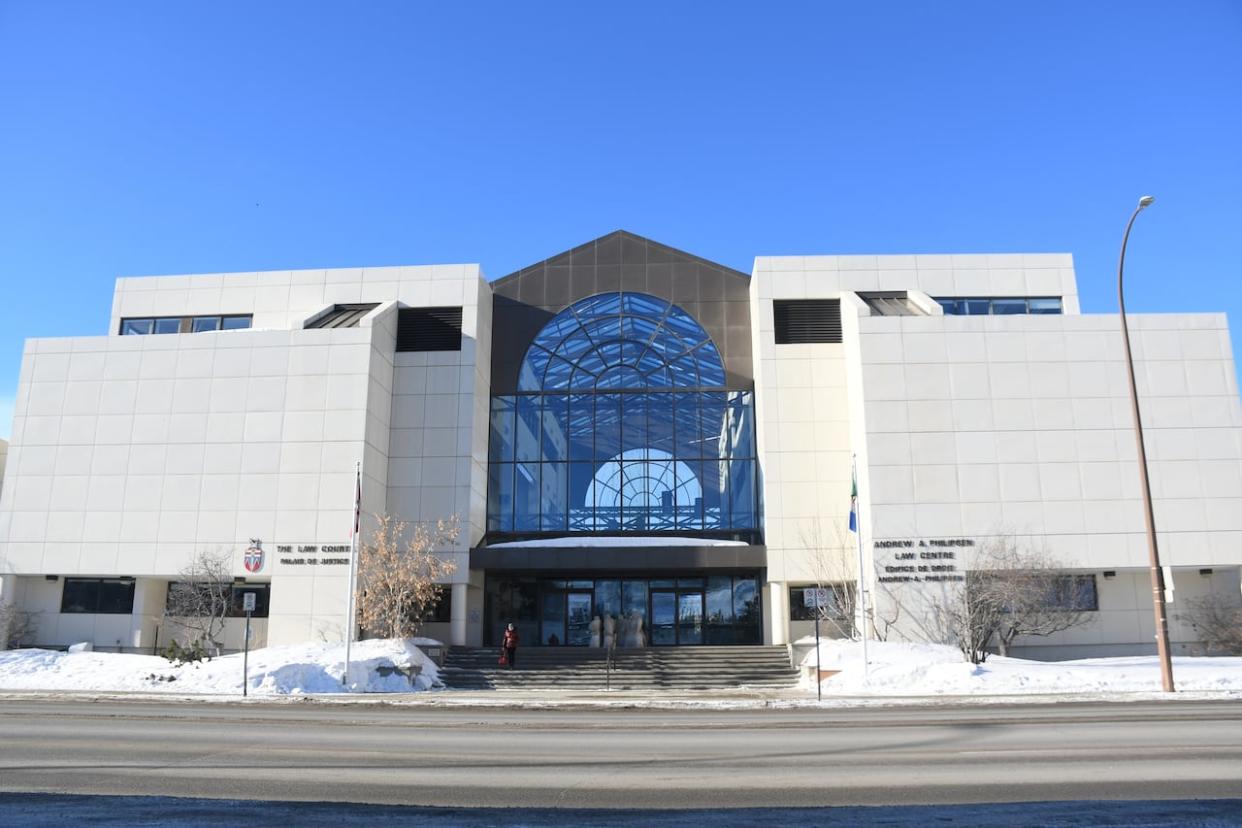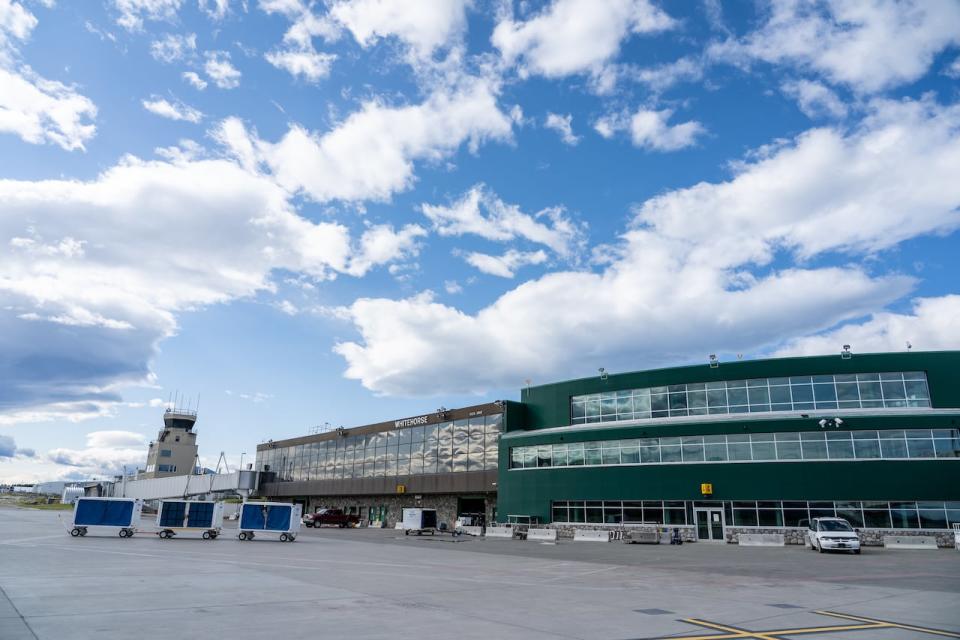Yukon wants $8.5M, contractor claims zero responsibility in appeals over cracked Whitehorse airport apron case

The Yukon Court of Appeal heard arguments this week over decisions that doled out liability and damages over the 2014 replacement of the Whitehorse airport's concrete apron, which began cracking shortly after it was finished.
Lawyers for contractor Norcope Enterprises Ltd., project bond-holder Intact Insurance Company, and the Yukon government spent Monday and Tuesday arguing that their respective parties held zero responsibility for what happened.
Norcope and Intact Insurance say they don't owe the government anything, while the government argues Norcope owes it more than three-and-a-half times the money originally awarded.
The Yukon government originally took Norcope to court in 2017, about three years after the company was awarded a multi-million dollar contract to replace the concrete apron — the area where planes park, also informally known as the tarmac — at the Erik Nielsen Whitehorse International Airport.
The concrete panels began cracking the same year.
The government also sued Intact Insurance to recover the more than $1.78-million bond on the project.
Norcope quickly responded with a counter-lawsuit, and the case was the subject of a five-week-long trial.
Yukon Supreme Court deputy Justice Adele Kent ruled last year that the government, Norcope and subcontractor Tetra Tech, which was doing quality control and assurance for both sides, all held different levels of responsibility for the cracking.
In her decision, Kent wrote that the government didn't supervise the project closely enough, while Norcope had poor construction practices and Tetra Tech didn't provide adequate quality control and also provided a bad concrete mix.
The Yukon government settled with Tetra Tech outside of court. Kent ordered Norcope to pay the government more than $2.3 million for its part in the project going sideways, and in a follow-up decision, ruled that Intact Insurance was jointly liable and had to pay out the bond.
The government, Norcope and Intact Insurance all appealed.
Government says Norcope should pay more than $8.5M
In court Monday, Norcope's lawyer, James Tucker, acknowledged there was deficient work that caused a handful of the approximately 250 concrete panels in the apron to crack. However, he said it wasn't fair to infer that bad concrete and workmanship was present across the entire apron and that it was the reason other panels cracked too.
The judge didn't fairly consider if frost heaves were behind the damage, he said, which Norcope would not have been liable for.

Erik Nielsen International Airport in Whitehorse earlier this year. (Vincent Bonnay/Radio-Canada)
Tucker also took issue with Kent relying on a Tetra Tech report about the cracking and testimony from the report's author, arguing that evidence shouldn't have been admitted at all.
He flipped the blame back on the Yukon government, saying that it was responsible for supervising the work but didn't do so well enough, and that the warranty on the work had expired by the time the Yukon brought its claim.
Norcope is asking for the order that it pay damages to the Yukon government be quashed and the government's lawsuit dismissed. Alternatively, it wants the damages to be adjusted or a new trial take place.
Lawyer Nigel Beckmann, representing Intact Insurance, largely agreed with Norcope's position, arguing the bond only had to be paid out if the Yukon met its contractual obligations.
Yukon government lawyer I.H. Fraser, meanwhile, argued that Norcope should be made to pay even more in damages, claiming that the trial judge erred in assigning any liability to the Yukon.
Fraser noted that at trial, a Norcope employee testified that none of the concrete panels ever met the specifications laid out under the project contract, meaning the work was defective from the beginning — not just when the cracks started to appear. Given the circumstances, he argued, it was also reasonable to infer that every panel in the apron had at least one defect in it.
The contract, Fraser continued, didn't have an explicit provision stating the Yukon government was obligated to supervise the project, but did state that Norcope had to follow the directions of the government's engineer or otherwise pay the cost of any work ordered.
The engineer, Fraser said, told Norcope to replace the entire apron, which it refused to do.
Norcope was also obligated to install the apron correctly regardless of anyone supervising or overseeing its work, Fraser argued.
The Yukon government is seeking a revised order that Norcope pay it $8,569,894.76 in damages. The figure accounts for the cost of having a different contractor replace the apron, minus a small portion to account for Tetra Tech's liability and the fact that the Yukon was still able to use the defective apron for eight years.
Yukon appeal cases are heard by a panel of three judges. They reserved their decision, and didn't immediately give a date on when it could be expected.


